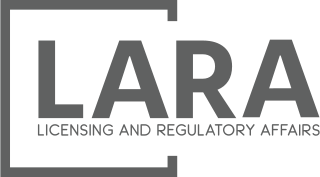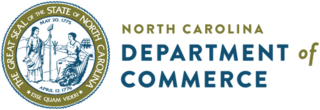
The Government of the Hong Kong Special Administrative Region is the executive authorities of Hong Kong. It was established on 1 July 1997, following the handover of Hong Kong.
The United States order of precedence is an advisory document maintained by the Ceremonials Division of the Office of the Chief of Protocol of the United States which lists the ceremonial order, or relative preeminence, for domestic and foreign government officials at diplomatic, ceremonial, and social events within the United States and abroad. The list is used to mitigate miscommunication and embarrassment in diplomacy, and offer a distinct and concrete spectrum of preeminence for ceremonies. Often the document is used to advise diplomatic and ceremonial event planners on seating charts and order of introduction. Former presidents, vice presidents, first ladies, second ladies, and secretaries of state and retired Supreme Court justices are also included in the list.

The Kentucky Transportation Cabinet (KYTC) is Kentucky's state-funded agency charged with building and maintaining federal highways and Kentucky state highways, as well as regulating other transportation related issues.

The Oklahoma Employment Security Commission (OESC) is an independent agency of the state of Oklahoma responsible for providing employment services to the citizens of Oklahoma. The commission is part of a national network of employment service agencies and is funded by money from the United States Department of Labor. The commission is also responsible for administering the Workforce Investment Act of 1998 on behalf of the state.
The Oklahoma Department of Commerce is a department of the government of Oklahoma under the Oklahoma secretary of commerce. The department is responsible for the supporting local communities, stimulating growth of the existing businesses, attracting new business, and promoting the development and availability of a skilled workforce. The department is the lead agency for economic development in the state. The department is led by and under the control of a director appointed by the governor of Oklahoma, with the approval of the Oklahoma Senate, to serve at the pleasure of the governor.
Executive Schedule is the system of salaries given to the highest-ranked appointed officials in the executive branch of the U.S. government. The president of the United States appoints individuals to these positions, most with the advice and consent of the United States Senate. They include members of the president's Cabinet, several top-ranking officials of each executive department, the directors of some of the more prominent departmental and independent agencies, and several members of the Executive Office of the President.
The Oklahoma Tax Commission (OTC) is the Oklahoma state government agency that collects taxes and enforces the taxation and revenue laws of the state. The Commission is composed of three members appointed by the Governor of Oklahoma and confirmed by the Oklahoma Senate. The Commissioners are charged with oversight of the agency but appoint an Executive Director to serve as the chief administrative officer of the Commission and to oversee the general practices of the Commission.
The Kansas State Cabinet is part of the executive branch of the Government of the U.S. state of Kansas, consisting of the appointed heads of the Kansas state executive departments.

The Michigan Department of Licensing and Regulatory Affairs (LARA), originally the Department of Commerce among other names, is a principal department in the Michigan executive branch that oversees employment, professional licensing, construction, and commerce.
Natalie Shirley is an American lawyer and businesswoman and university president from Oklahoma. Shirley previously served as the Oklahoma Secretary of Commerce and Tourism under Governor of Oklahoma Brad Henry, having been in that position from 2007 to 2011. She was Governor Henry's second Secretary of Commerce and Tourism, having succeeded Kathy Taylor. Concurrent with her service as Commerce Secretary, Shirley was appointed by Governor Henry to serve as the Director of the Oklahoma Department of Commerce from 2007 to 2011. In March 2012, she became the fourth president at Oklahoma State University-Oklahoma City.

This page relates the history of the position of Oklahoma Secretary of Commerce and Tourism.

The executive branch of the government of Puerto Rico is responsible for executing the laws of Puerto Rico, as well as causing them to be executed. Article IV of the Constitution of Puerto Rico vests the executive power on the Governor—who by its nature forms the executive branch.

The Wisconsin Department of Workforce Development (DWD) is an agency of the Wisconsin state government responsible for providing services to Wisconsin workers, employers, and job-seekers to meet Wisconsin's workforce needs. To effect its mission, the Department administers unemployment benefits and workers' compensation programs for the state of Wisconsin; ensures compliance with state laws on wages and discrimination; provides job resources, training, and employment assistance for job-seekers; and engages with employers to help them find and maintain adequate staffing for their businesses.

The University of International Business and Economics is a public university located in Chaoyang, Beijing, China. It is affiliated with the Ministry of Education. and co-funded by the Ministry of Education and the Ministry of Commerce. The university is part of Project 211 and the Double First-Class Construction.

James Edward Campos is an American businessman who currently serves as Deputy Secretary of Commerce and Trade in Virginia under the Youngkin administration, with a portfolio focused on energy development, innovation and advancement. Campos also currently serves as the Acting Director of the Virginia Tobacco Region Revitalization Commission, an economic development organization focused on Southern and Southwest Virginia. Campos served in the Trump administration as the Director of the Office of Economic Impact and Diversity at the United States Department of Energy (DOE) between 2018 and 2021. Campos was nominated to the position on March 2, 2018 by President Donald Trump and confirmed 98-2 by the United States Senate on April 9, 2018.

The North Carolina Department of Commerce was formed in 1971 by the North Carolina State Government Reorganization Act. The department is headed by the Secretary of Commerce, who is appointed by the Governor of North Carolina. The Secretary is part of the Governor's Cabinet. The chief function of the department is to connect businesses with locations, workforce and infrastructure in North Carolina that businesses need to succeed. The department also connects local communities with grants and funding sources to attract new business to North Carolina. The department also staffs and receives policy guidance from: the North Carolina Board of Science, Technology, and Innovation; the NCWorks Commission; and the Rural Infrastructure Authority.












